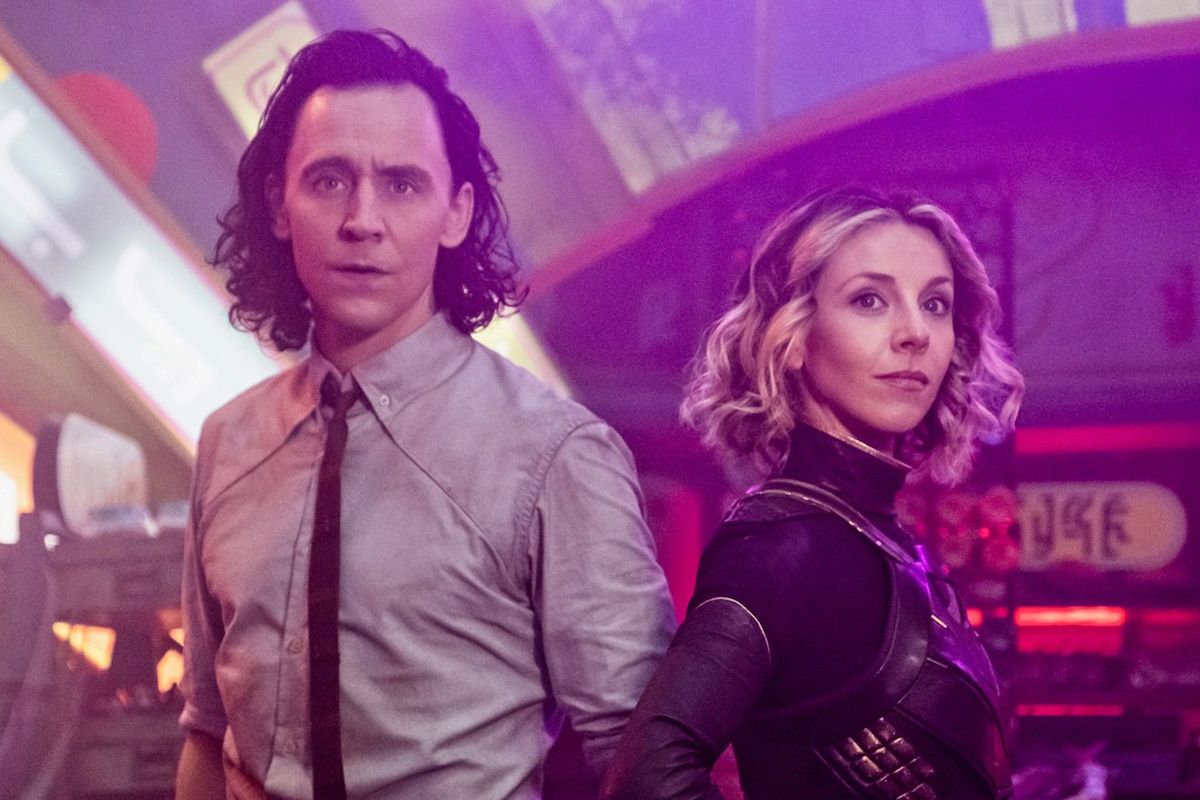Loki’s Kate Herron Weighs in on the Idea That a Loki/Sylvie Relationship Is Incest


**Spoilers for the season finale of Loki ahead.**
Loki’s short first season run spawned countless discussions, hot takes, and think pieces. But few moments were quite as hot-takey as the kiss Loki and Sylvie shared in the season finale.
The kiss has sparked all sorts of debate. For some, it was disappointing to see a het coupling from the MCU’s first canonically bi/pansexual character. Many have compared the Loki/Loki kiss and romance to incest. Some don’t go that far but see it as generally “squicky”–a view others still see as being driven by unconscious transphobia. And of course, there are those who just thought it was sweet.
Speaking with Polygon’s Tasha Robinson, season one’s director and executive producer Kate Herron said she follows the conversations happening about Loki online but she doesn’t weigh in, and insists (probably correctly) that fans don’t want her weighing in. Art “should be up for debate and discussion,” she says.
But she did weigh in on the kiss, and specifically if it is a form of incest.
“My interpretation of it is that they’re both Lokis, but they aren’t the same person,” Herron says. “I don’t see them as being like brother and sister. They have completely different backgrounds […] and I think that’s really important to her character. They sort of have the same role in terms of the universe and destiny, but they won’t make the same decisions.”
Robinson writes:
Herron says thematically, Loki falling for Sylvie is an exploration of “self-love,” but only in the sense that it’s Loki learning to understand his own motives and integrity. “[The show is] looking at the self and asking ‘What makes us us?’” Herron says. “I mean, look at all the Lokis across the show, they’re all completely different. I think there’s something beautiful about his romantic relationship with Sylvie, but they’re not interchangeable.”
As Herron says, art is supposed to be up for debate and people are going to react to moments of intimacy differently, especially as our own experiences will color the ways in which we process that art. Personally, I really like the idea of the relationships between Lokis being a conduit for their own exploration of self, and that’s how I interpreted the kiss–which I read as a more platonic expression of love anyway.
But that’s me. All art is subjective but there’s something especially interesting about a show that plays with such lofty, abstract concepts as multiple selves and alternate timelines. It lends itself to infinite readings, like branches off of a timeline.
What did you think of this kiss and how do you feel about Herron’s explanation? Let us know below.
(via Polygon, image: Marvel Studios)
Want more stories like this? Become a subscriber and support the site!
—The Mary Sue has a strict comment policy that forbids, but is not limited to, personal insults toward anyone, hate speech, and trolling.—
Have a tip we should know? [email protected]
